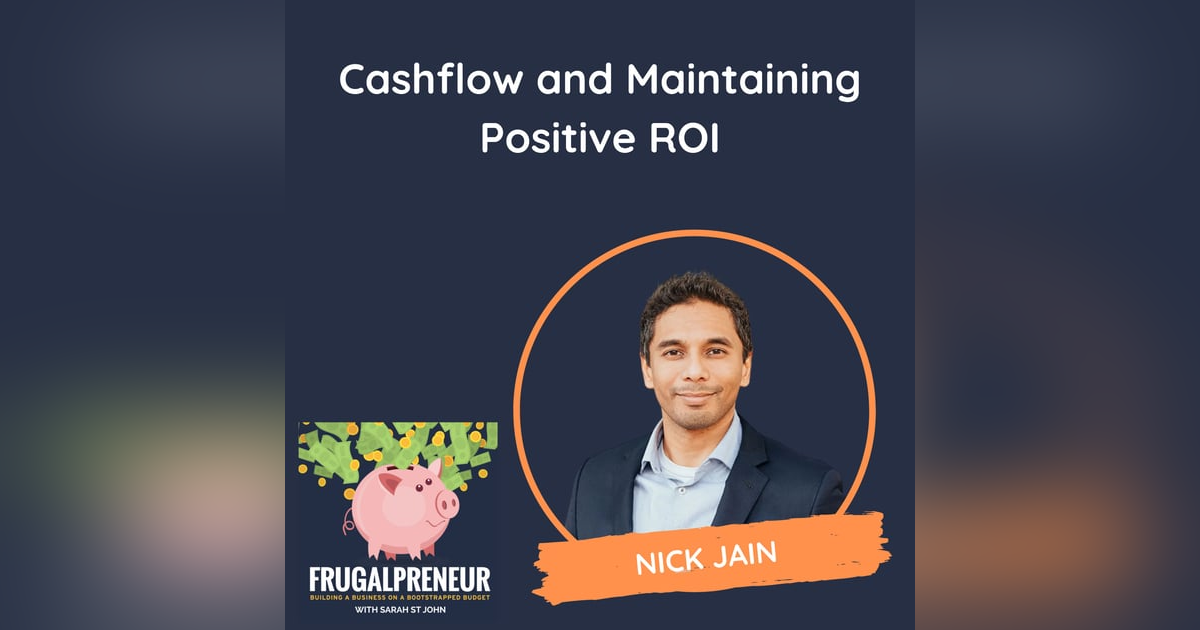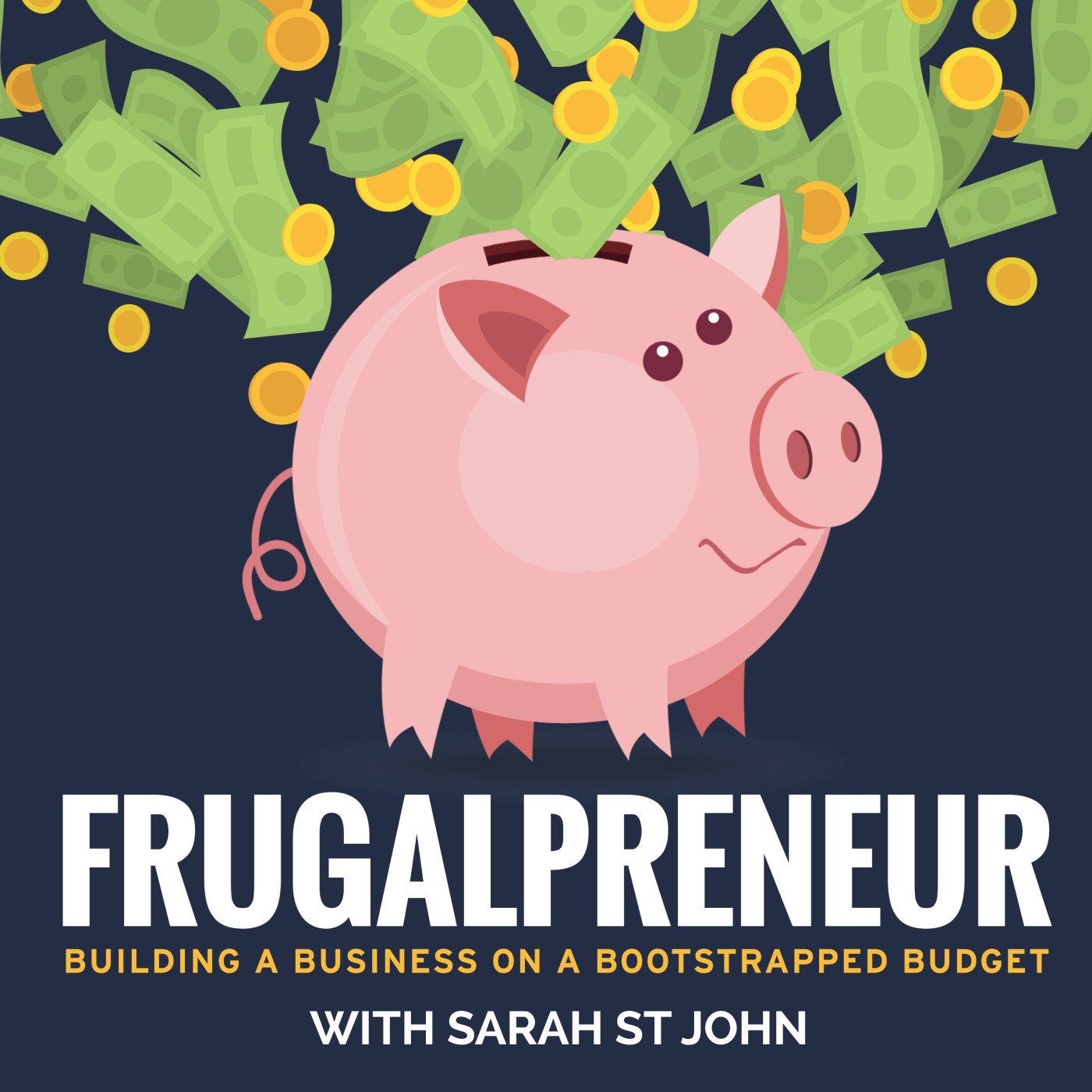Cashflow and Maintaining Positive ROI (with Nick Jain)

This podcast episode features a showcase of insights from Nick Jain, the CEO of IdeaScale, who articulates the critical necessity of innovation within organizations. He underscores that without a commitment to innovative practices, businesses risk stagnation, particularly in a competitive landscape where rivals continuously strive for advancement. Throughout the discourse, Jain emphasizes the merits of bootstrapping, detailing how IdeaScale has thrived over the past 15 years without external capital, thereby preserving its autonomy and focus on sustainable growth. He offers three pivotal strategies for aspiring entrepreneurs: maintaining a vigilant awareness of cash flow, judiciously allocating marketing expenditures, and ensuring that every investment yields a tangible return. My aspiration is that listeners glean at least one actionable takeaway from Jain's experiences, which they may readily apply to their own entrepreneurial journeys.
The podcast delves into the intricacies of bootstrapping a business, specifically through the lens of Nick Jain, the CEO of IdeaScale, a prominent innovation software company. Jain articulates the vital significance of innovation within organizations, asserting that stagnation inevitably leads to decline. He emphasizes the necessity for continuous improvement, outlining the competitive landscape wherein failure to innovate equates to being outpaced by rivals. IdeaScale's journey, marked by unwavering commitment to sustainable business practices without reliance on external funding, serves as a testament to the efficacy of strategic decision-making and fiscal prudence. Jain reflects upon the duality of challenges and triumphs experienced during their bootstrapping endeavor, acknowledging moments where external capital could have catalyzed growth yet simultaneously recognizing the constraints and pressures accompanying such funding.
Takeaways:
- The importance of innovation in every organization cannot be overstated, as stagnation leads to decline.
- Bootstrapping a business requires a disciplined approach to financial management and strategic decision making.
- Understanding and managing cash flows is critical for the sustainability of any bootstrapped enterprise.
- Marketing expenditures should be scrutinized for their return on investment to ensure effective growth strategies.
- Continuous learning is essential for personal and professional development, regardless of one's position or industry.
- A focus on sustainability and cost-effectiveness is vital for long-term success in entrepreneurship.
Relevant Links:
00:00 - Untitled
00:44 - Untitled
01:07 - Introduction to Showcase Episodes
01:58 - The Importance of Innovation in Business
04:08 - Bootstrapping a Business: Key Considerations
05:23 - Innovating in Business
06:08 - Investing in Continuous Learning
Welcome to the Frugalpreneur podcast. I am your host, Sarah St. John.This episode is what I refer to as a showcase episode where I feature a bootstrapped entrepreneur and they briefly share their tips, tricks, tactics, techniques and tools that help them bootstrap their business and the successes and failures along the way.My hope is that each of these showcase episodes will provide at least one valuable takeaway that you can implement with right away in your own bootstrap business journey. Now onto the episode.
Nick JainHi, my name is Nick Jain. I'm the CEO of IdeaScale. We are the largest innovation software company on the planet. We've been around about 15 years.We have hundreds of clients, both in the public and private sector.Our clients include companies like Comcast and Pfizer, nonprofits like Doctors Without Borders and the Mid Ohio Food Collective, which is the largest food bank in Ohio.Major US Government agencies like the US Post Office, Transportation Safety Authority Authority, the Coast Guard, all these organizations impact our lives on a daily basis. And I'm really proud to say that IdeaScale helps these organizations innovate every single day.And what I really want to emphasize is that innovation is really important to every organization because if you're not innovating, you're moving backwards. If you're not innovating, just remember your competitors certainly are.So one of the awesome things about IdeaScale is it's been around for 15 years and it's been bootstrapped. It's always been owned by a couple set of co founders. And that is really powerful because today we answer to no one but our owners.And that means we don't have the board politics of venture capital firms. There's no pressure to IPO or sell tomorrow.Instead, we can really grow this business for the benefit of our customers, our shareholders and our employees really focusing on the long term in order to achieve this.I think one of the things that IdeaScale did really well right from day one under our original founders is it emphasized on running a sustainable business. A business that lives within its means, that thinks about costs effectively, but then also doesn't underprice its product.I think one of the challenges that young business often faces, you want to generate sales and and then you sell at whatever low price your customers are willing to buy at. And that really sets you up poorly for the future.I think right from day one, IdeaScale realized the value of our product and we realized how to manage a business cost effectively. And that's allowed us to be bootstrapped from day one. Look, bootstrapping a business is really difficult.That's why so many small organizations and startups take external capital, whether it be from seed investors, from family members, from venture capitalists, private equity funds, et cetera, etcetera.I think our biggest failure that we didn't bootstrapping was there were probably times when it might have made sense to take external capital because we could have grown a little faster, but conversely, we avoided some of the strings that come attached from to external capital. Conversely, I think our biggest success is when we are really disciplined decision makers here.When we make a decision to go pursue something, whether that be international expansion, a new marketing campaign, a new product, we we're investing our own money, not somebody else's money. So we're really thoughtful about it and we're willing to take big swings, thoughtful swings, when we're ready to do so.I think that there's three tips and tricks that I would give to anyone looking to bootstrap a business, whether it be a software company, a shoe company, a hardware store, whatever it is. Number one is be really thoughtful about cash flows. Right? Accounting is great.I worked on Wall Street, I get all the accounting stuff, but cash is king. You really need to understand how money is moving in and out of your company.And the most important aspect for that, for small business is managing your working capital. If you don't know what working capital is, go look it up on wikipedia. Go ask ChatGPT how to manage it effectively. That's really important.Number two is thinking about marketing. I think a lot of young businesses often overspend on marketing without actually seeing if they're getting a return in a timely way. Think.Number three is thinking about roi. Positive decisions, return on investment. When you spend a dollar, you need to get more than a dollar in profits back.And if you're not doing so, your business is basically treading water or not growing. That's something that you can analytically do. It's really easy in a spreadsheet.Again, if you don't know how to calculate ROI for any type of business, go look it up on wikipedia or ask ChatGPT. So as part of thoughts, I think I have a few things.Firstly is that regardless what sort of business you're running, whether you're a solo entrepreneur, whether you're a consultant, whether you're running a hardware store, whether you're running a giant software company, you need to innovate. You need to get better tomorrow than you are today.Because if you're not, you're really moving backwards because your competitors out there are hungry, they want to eat your lunch. You need to get better. And that's both in small ways as well as big ways. The second is a request.My company software is entirely free for organizations less than 100 people, so I would love if you can come check us out. It's ideascale.com click get started Free. You don't have to Download anything. Takes 30 seconds.Set up and we would love to be the innovation software you use to run your business, whether big or small. Obviously, if you're large, we would love for you to have you as a customer.And the final thing I would say is regardless of where you are in your career, whether you're starting out or whether you're a CEO, invest in continuous learning. Go take online courses in something.Whether it be something fun that you're really interested in, maybe pop music or something technical like how to do prompt engineering for generative AI or how to program. Go do those. You'll get smarter and you'll get better and you'll be happier in your life and career.
Sarah St JohnI hope you enjoyed that episode and were able to take away a valuable nugget of information that you can implement right away in your own business. If you feel your story would be valuable for the listeners of this show, please visit Frugal Show Guests.








